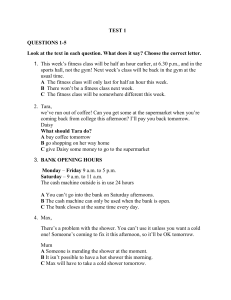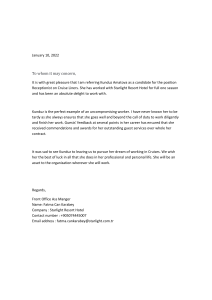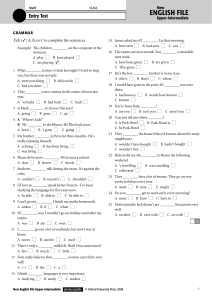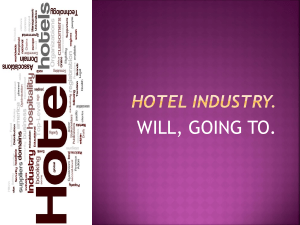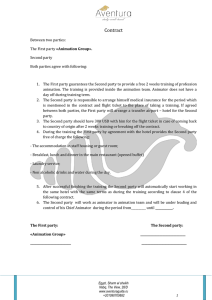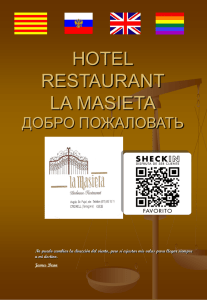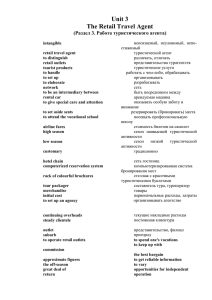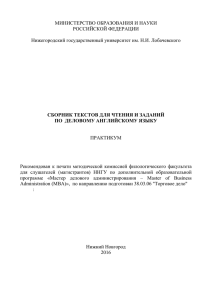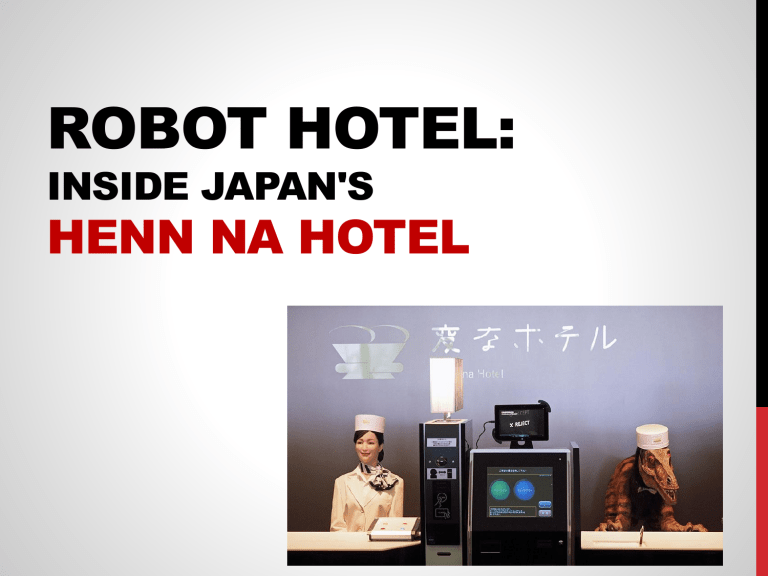
ROBOT HOTEL: INSIDE JAPAN'S HENN NA HOTEL Ahead of the opening of the world's first hotel staffed by humanoid robots, our writer gets an exclusive look at what's on offer. I am sipping tea in a minimalist Japanese hotel room while chatting to my personal concierge. She adjusts the lighting, checks the room temperature, sets an alarm call and chirpily informs me that tomorrow’s weather will be a little cloudy. This may sound like unremarkable hotel small talk, yet I am transfixed by every word. This is because the “concierge” micro-managing my stay is not a human being. She is a robot. More precisely, she is Churi-chan, a pint-sized pink and green cartoon-like character with three hearts on her forehead and a permanent smile who sits on my bedside table and tries very hard to be helpful. Churi-chan is one of a number of surreal creatures I encounter during my stay at Henn-na Hotel, the world’s first robot hotel which opens tomorrow in Japan’s southern Nagasaki Prefecture. From check-in staff and porters to cloakroom and concierge, human jobs have been usurped by an eclectic cavalcade of robots at Henn-na Hotel, whose name aptly translates as “strange” (although staff prefer the word “evolve”). The bleeping, flashing and perma-smiling robots assume a variety of forms – among them, a long-haired lady humanoid, a head nodding dinosaur and a luggage-toting mechanical limb. Not to forget Churi-chan, one of which sits in each of the 72 rooms - the doors of which, incidentally, open with just a glance, rather than a tiresome key, using facial recognition technology. Behind the scenes are 10 human staff dressed like stagehands in top-to-toe black, who survey the hotel through security cameras and are quick to help with techno blips. Among them is Iwazume Takeru, the quietly spoken hotel manager, who swapped the more conventional Sheraton in Kobe city for his new role. “I was happy to come here, it’s an exciting hotel,” he enthuses, as we take a stroll through Truman Show-perfect gardens. “I’ve always been interested in robots, they are the future.” Japan is an obvious setting for such a hotel. Land of the vending machine and machine-staffed love hotel, the nation has long been at the forefront of technology – particularly robotics. Barely a day passes here without the unveiling of a new automaton - from androids in banks to robot cleaners in airports – and they play an increasingly high-profile role in a shrinking, ageing population. Against such a backdrop, Henn na Hotel’s creators insist the new establishment is no gimmick but a low cost prototype “smart” hotel of the future. Room rates start at just £47 (Y9,000). Setting off to check into the new hotel, it is soon clear that one thing more “strange” than the robotic staff is the setting. The hotel is located in Huis Ten Bosch, a 380-acre waterfront theme park celebrating all things Dutch – cue countless European-style brick buildings, expanses of tulips and even a Dom Tower replica (lit up in rainbow lights after dark). From central Nagasaki, I hop on board a small empty ferry with retro Fifties upholstery, taking in views of blue seas and green peaked hills. Then around an hour later, we hit land. Piped Hollywood movie-style music echoes across the empty Dutch architecture (it’s a quiet weekday), a woman in a white hat takes my bags and I’m whisked away in a car. Five minutes later we arrive at Henn na Hotel. The new hotel is more contemporary Japanese than Dutch, with a tiered network of low-rise white rectangular buildings on manicured lawns. Standing near the glass entrance, I spy my first robot: a tall futuristic multi-limbed creature which humans can apparently climb into and operate, although the staff looked terrified when I asked to try it – guests have to make do with expert demonstrations. Inside the lobby – an airy modern space with a vast Japanese ikebana flower display in the middle – a colourful cast of robots can be found. First, I see a large white mechanical “cloakroom” arm encased in a glass cube which dramatically retrieves suitcases and places them inside lockers. Next, I spot a bowing humanoid “lady” called Yumeko (“Dream Girl”) with long dark hair, animated eyebrows and a slightly eerie smile who welcomes me in Japanese at the front desk. The English-speaking dinosaur sitting next to her, complete with a bow tie, tiger-like fur and a constantly bobbing head, then informs me with authority: “If you want to check in, push one!” I proceed to check in, pressing buttons to confirm my identity, before making payment on a touch screen and having my face scanned for room access. I am then instructed to follow my robot “porter” - a mechanical hip-high device carrying my suitcase that rolls at a snail’s pace up slopes and along corridors, playing loud disco music and telling me off when I stop walking in a straight line. When we finally reach room 209, I stare at the face scanner – before being firmly rejected. It takes two more goes before I get the hang of it (I have to stand closer, it transpires) and the door finally opens. Inside, the design in the rooms – as throughout the hotel – is surprisingly tasteful, in a Muji store kind of way: contemporary minimal Japanese, with expanses of natural woods, simple neutral furnishings and walls of windows. Against such a backdrop, Churi-chan is impossible to miss: the small cartoon-like robot inspired apparently by a pink tulip sits on the bedside table awaiting instructions from guests. She only speaks Japanese, but a helpful English information sheet explains what sounds to make to communicate, which I put to the test, leading to a brief chat about the time and tomorrow’s weather. Dinner is an equally unusual affair. Tying in with the no-frills (and no-human) approach, the café consists of light wood tables and chairs – and a clutch of vending machines. Fried octopus balls, o nigiri rice balls and hot dogs are on the “Casual Frozen Foods” menu via one machine, while others sell an assortment of cookies, soft drinks and coffees. After some rice balls and fried chicken, washed down with a can of grapefruit juice, I head back to my room, say goodnight to Churi-chan and tumble into sleep (with only a brief interruption when the automatic lights flick on half way through the night). If Hideo Sawada, the charismatic president of Huis Ten Bosch, has his way, the experience will soon become available far beyond the theme park. In addition to a second 72-room building opening nearby early next year (complete with room service robots), he aims to open “hundreds” around the world over the coming decade. “I’d love to open one in the UK,” he tells me. “Ideally with humanoids ladies speaking different British accents. Maybe able to wink too. That would be fun.” Judging by his success so far at fulfilling seemingly far-fetched dreams, a hotel run by winking lady robots with British accents may well become a reality. Double rooms from £47 (Y9,000). For more information, see: h-n-h.jp Danielle Demetriou travelled as a guest of Inside Japan Tours (0117 244 3263; insidejapantours.com), which offers an eight-night 'Robots and Ryokan' package to destinations across Japan from £1,032 per person, including one night at Henn na Hotel (excluding international flights). https://www.facebook.com/Telegraphtravel/ UNDERSTANDING Henn-na Hotel in Japan is the world’s first hotel staffed mainly by robots. 1. In which city is the Henn-na Hotel situated? 2. How many humans work at the hotel? 3. Why doesn’t the hotel use ‘tiresome’ conventional keys to unlock the guest rooms? 4. What evidence supports the view that the writer likes the hotel? 5. Do you agree with the hotel manager that robots ‘are the future’? 6. If you were the designer, what aspect of the hotel would you change? WORD BUILDER – SETTING THE TONE The Henn-na Hotel is hoping to attract guests who like science fiction, and specifically robots, so it aims to be different, futuristic and full of technology. The words from the text: ‘animated’, ‘contemporary’, ‘eclectic’, ‘eerie’, ‘minimalist’, ‘surreal’ – help to describe the mood within the hotel. 1. Given the aim of the hotel, which of the phrases in each string best suggest the tone created by lead adjective? The first one completed for you as an example. E.g. animated = passive and motionless/ active and vigorous/ dull and lifeless The correct answer is ‘active and vigorous’ because ‘animated’ refers to the robots that need to be moving with energy to do their tasks and impress the guests. a. Contemporary = modern and new/ old-fashioned and sophisticated/ outdated and obsolete b. Eclectic = uniform and predictable/ varied and ranging in style/ similar and bland c. Eerie = comforting and calming/ bright and cheerful/ strange and slightly unsettling d. Minimalist = cluttered and homely/ essential and what is required/ ornate and lavish e. Surreal = ordinary and dull/ out of the ordinary and fantastic/ real and expected 2. Now it is your turn to create three adjectives to set the mood for these buildings. a. A deserted office block b. A busy department store c. A supermarket

